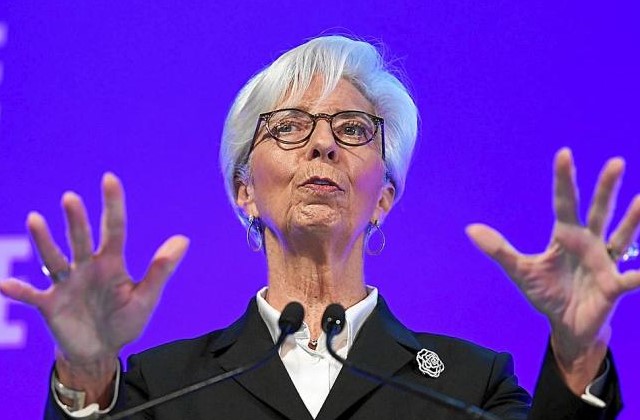Annalisa Piazza (MFS Investment Management)| The ECB left policy rates unchanged after yesterday’s Governing Council meeting, with the depo rate remaining at 4%. Forward guidance remained unchanged, with future decisions being completely data dependent. Based on the current assessment, the ECB will leave rates at sufficiently restrictive levels to make sure inflation returns to 2%. EGBs rallied after the relatively dovish press conference and spreads marginally tightened.
At the current juncture, the ECB reiterates that inflation remains high and the future path will be driven by opposing forces. Indeed, domestic pressures (i.e. wages) remain elevated whilst underlying inflationary pressures have moderated as tightening financing conditions are increasingly dampening demand. The most recent Bank Lending survey and data continue to point in the direction of weaker activity as lending is shrinking. Hence, it is a matter of time to see the impact also on prices. The cracks in the labour market need to become more profound to see a significant decline in wages. That said, wage negotiations in 2024 will unlikely offer the same generous outcome as seen in 2023. The ECB is clearly suggesting the developments of wages, ULC and ECI will be crucial to define the future steps (i.e. thinking about rate cuts).
Guidance on PEPP reinvestment has not changed in the press release, signaling the continuation of the policy tool until the end of 2024. In addition, Lagarde mentioned the end of PEPP or any discussion on reserves were not discussed at today’s meeting, despite some of the hawkish ECB members.
Risks around inflation seem to be more balanced but we would argue that factors mentioned that add to upside risks are mainly supply driven (i.e. higher energy or food prices due to geopolitical event risk). As such, there is not much the ECB can do about this. Should Europe experience another energy shock, for example, Lagarde made clear that the response of the ECB will be different from 2022 as the event will hit an economy that has already suffered from a shock, that has higher interest rates and that is weakening.
Quite interestingly, Lagarde mentioned high rising yields globally is due to factors that go beyond the fundamental picture in the Eurozone. The recent spike in yields seem to be a reason of concern for the ECB as increases risks of even tighter financing conditions and risks of having an impact on financial stability.





